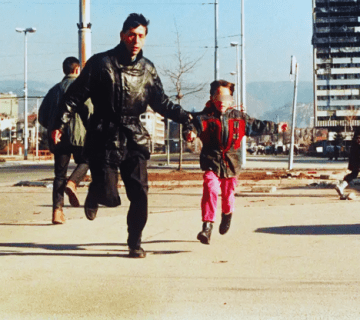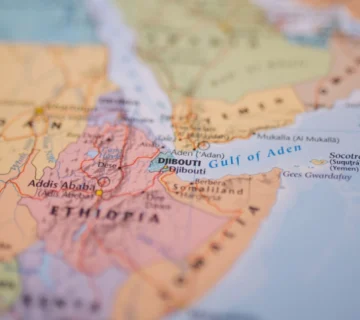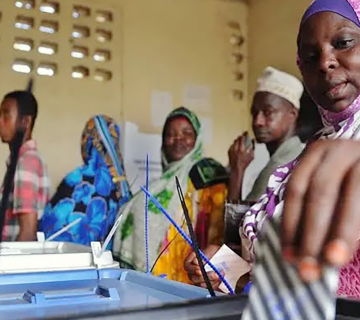On February 22, 2020, South Sudan’s erstwhile belligerent leaders Salva Kiir and Riek Machar formed a unity government based on the Revitalized Agreement on the Resolution of Conflict in South Sudan (R-ARCSS) signed in September 2018. The R-ARCSS was signed between South Sudan’s People’s Defence Forces (SSPDF); Sudan People’s Liberation Movement-in-Opposition (SPLM-IO); and the South Sudan Opposition Alliance (SSOA) – an alliance of small fighting forces that arose from the hostilities of 2016. Although the formation of the unity government was a significant milestone in the implementation of the R-ARCSS and which signaled a new dawn for South Sudan in its quest for stability, the full implementation of the peace pact has dragged, with fears that it could collapse, especially, as the country approaches elections in 2022 or later. Failure to implement the security arrangements – cantonment and unification of forces – have resulted in fresh sources of conflict and insecurity as new armed insurgencies rise to contend for power. Elsewhere, communal violence continues, particularly, in the country’s remote areas raising the number of civilians dying from the war.
Elusive Peace
South Sudan’s political history paints a picture of a country constantly under political struggle. The outbreak of conflict in 2013, following clashes between President Kiir and the then vice president Machar, brought the country into the abyss of cross-factional civil war. In 2018, a long-drawn peace process culminated into the R-ARCSS peace deal, which essentially replaced the initial ARCSS agreement signed in 2015 but which collapsed in 2016 when fresh fighting broke out in Juba. The breakdown of the 2015 agreement was largely triggered by challenges in the implementation of security arrangement provisions of peace, mainly, ‘disputes over cantonment and future redeployment of forces’.
Following the fallout, the peace process froze temporarily until late 2017 when regional governments rekindled the negotiations, first steered by the Ethiopian Prime Minister Abiy Ahmed and Omar al-Bashir, the former president of Sudan. These peace talks resulted in the signing of the September 2018 agreement. Central to the agreement was the power-sharing and security arrangements that called for the formation of a transitional government of national unity (TGoNU) as well as the unification of forces.
Despite the existence of the peace deal, its implementation has been fraught with challenges. First, the parties missed two crucial deadlines to form a Unity Government – in May and November 2019. Second, although the ceasefire still holds and the parties have been working together since February 2020, key provisions of the agreement – the unification of forces, creation of transitional court justice, formation of new national assembly, as well as the economic reforms needed for recovery and development – have not been implemented. Of these, the most urgent is the lack of security arrangements. Practically, uniting all forces from the three warring factions would result in a bloated army (approximately 573,000 in number), which is beyond the government’s capacity to maintain given the current financial challenges. Moreover, failure to unite the forces has also opened new sources of conflict and insecurity in various parts of the country as forces regroup and attack civilian communities in protest against unfulfilled promises.
Pathways to Peace
South Sudan is still in a tense atmosphere despite improved relations between Kiir and Machar. It is imperative, therefore, that serious efforts are made to keep the peace deal alive and to avert any possible drift into chaos.
Two pathways to durable peace potentially exist for the country as it seeks to come from its legacy of conflict. First, it is important to sustain the current ceasefire between Kiir and Machar and manage potential spoilers. Second, and in the longer term, is to seek political structural reforms to turn away from the current ‘winner-take-all’ to one that allows for inclusivity and broad accommodation not only of the elite class but also of the South Sudanese population who have suffered the impact of conflict.
The need for inclusion is not merely an exercise of political correctness; it is vital for the success of the peace agreement. Given the country’s experience with war, it is clear that durable peace demands inclusion and consensus-building among political elites and communities. The challenge with the current peace deal, however, is that while it achieves stakeholder engagement at the highest level, it has left out meaningful participation of the civil society, which have been crucial in advocating for peace, creating spaces for dialogue, and championing for complete conflict transformation in South Sudan. Therefore, to ensure success of the peace deal, there is need to increase the level of participation of civil society organizations, especially, those with a focus on youth and women as agents of peace in South Sudan. Local stakeholders, as well as international partners, have a role to ensure that broader inclusion is achieved. As the country edges closer to elections, the UN and AU should step up their engagement to advocate for inclusion and broad participation of civil society and other political stakeholders, who are vital to the success of the peace deal.
In the long term, South Sudan’s political stakeholders must chart a roadmap toward a more durable political settlement. In this sense, restructuring national politics to introduce centripetalism in elections would work best. This would entail setting a minimum percentage of representation from various quotas such a youth and women that must be achieved for any government to be considered legitimate. For instance, given the large number of youth and women population in the county, allocating 40 per cent of the seats at the national level to these groups can bring about a sense of inclusion and could result in the stabilization of politics in the country.
Otieno. O. Joel is a Researcher at the HORN Institute
Photo: President Salva Kiir Mayardit of South Sudan at a past function in Juba in 2018 (Photo Credit: VOA)



